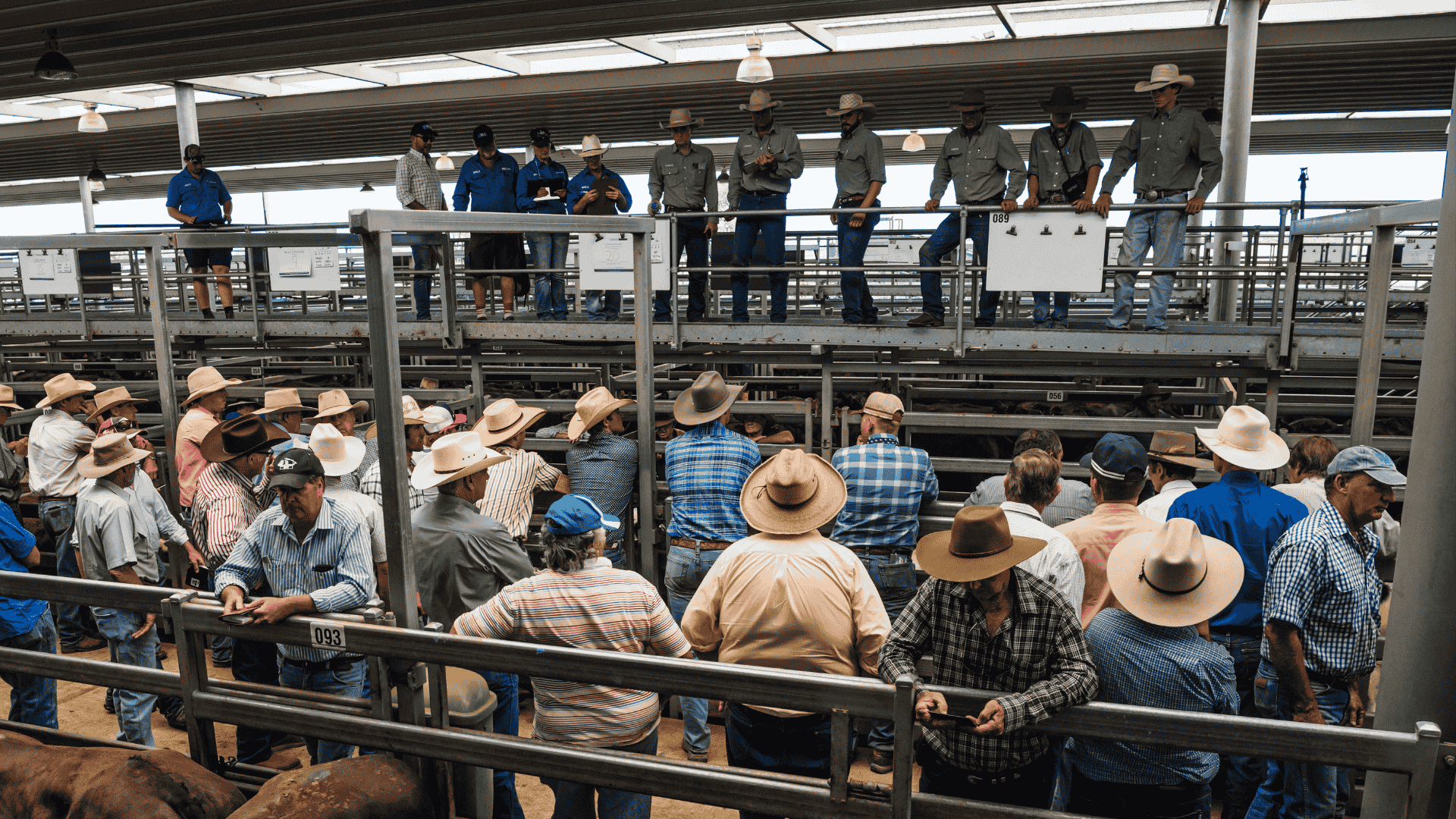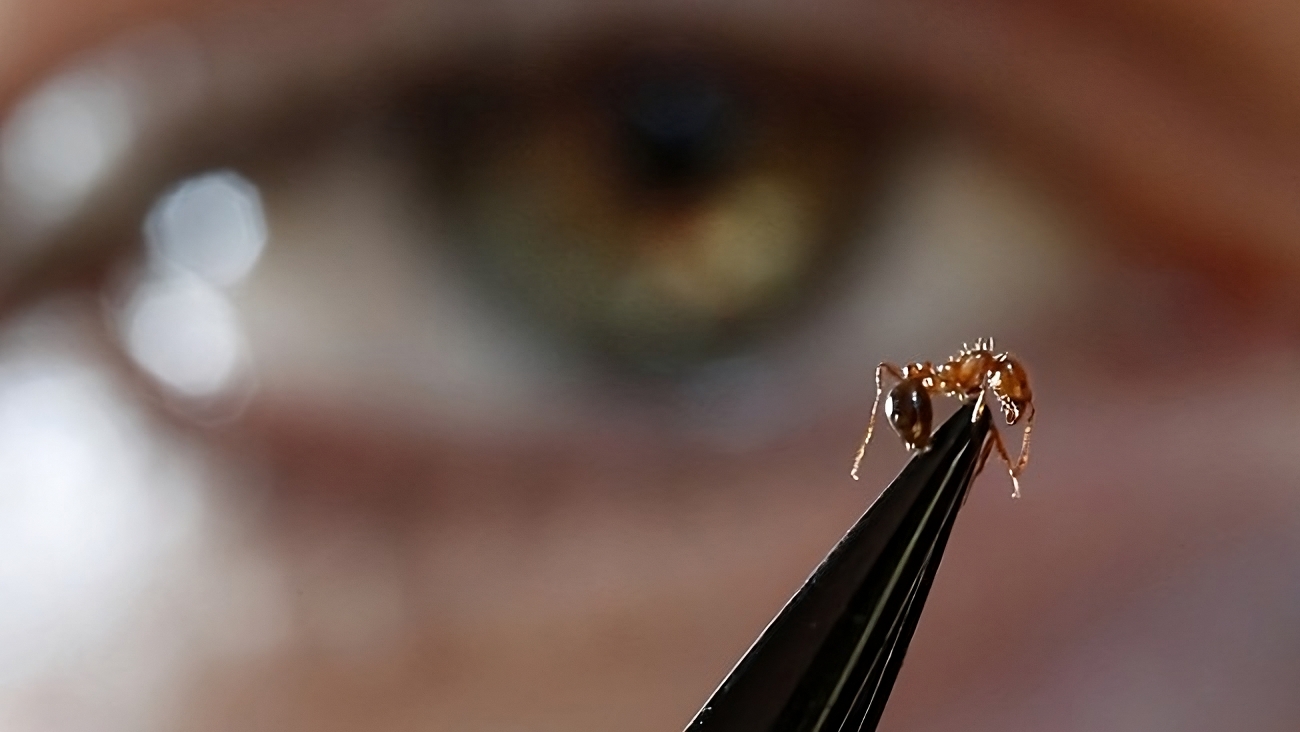What Trump's latest tariffs mean for Aussie livestock producers
Australian sheepmeat and goatmeat have been caught up in US President Donald Trump's latest tariff tantrum, but Australian beef will remain exempt.
A national program designed to stop the march of a deadly and destructive super pest is facing rising community resistance to mandatory baiting.
Hostility and resistance is on the rise among landowners who are fighting back against a mandatory baiting program to defeat invasive fire ants.
Australia has recently ramped up its decades-long effort to eradicate the South American super pest, which could cost the country billions each year if they escape from south east Queensland.
READ MORE: How fire ants could decimate livestock farming in Australia
But there's growing opposition among residents whose properties are being targeted under a compulsory mass baiting program, including on properties where there's no evidence fire ants are present.
Signs are appearing on gates and along fence lines, proclaiming: "We do not consent to the poisoning of us, our properties, pets, livestock, wildlife and eco-systems".
In response, the National Fire Ant Eradication Program has issued some landholders with notices warning they do not have the legal right to lock out treatment and surveillance teams, and obstruction could result in fines of more than $14,000.
A Facebook forum, titled Stop the Toxic Fireants Program, has more than 2000 followers and features posts urging objectors to have the courage to confront workers attached to the baiting program.
Some posts name and provide social media links for public servants attached to the program.
Others feature footage of residents challenging workers. Some have faced verbal abuse and accusations of trespass.
One post is titled "Wieambilla Can Happen Again" - a reference to the Queensland murders of two police officers and a neighbour by a family of religious extremists.
"Could these government actions cause another Wieambilla? Passionate landowners, wanting to protect their property from poison, could harvest enough hopelessness and negative emotion to lash out in a way that could harm or kill innocent employees of this toxic program," the post reads.
What's abundantly clear is that some residents do not buy assurances from the program that the chemicals - approved for use by the Australian Pesticides and Veterinary Medicines Authority - are safe.
Online posts report sick and drying animals on recently treated properties. Of an unnamed Gold Coast vet treating a spate of sick dogs for liver toxicity.
One of those leading the resistance is Trevor Hold, the author of the Wieambilla post.
So far, he's printed 10,000 brochures, and 500 fence signs with "amazing support from concerned residents throughout the eradication zone".
And he stands by that post, saying that as an accredited, qualified counsellor and mental health practitioner he understands the damage "abusive government programs" can have.
He says he initially trusted that baits were safe and effective but now believes the toxins they contain led to the premature death of two of his calves.
"I had zero fire ants at the start of their reckless poisoning, and I still have zero fire ants. Does this mean they have been effective?"
Queensland Agriculture Minister Minister Mark Furner says the science is clear, and fire ant treatments are safe and effective.
"This group is spreading misinformation that fire ant bait is a poison - it is not."
He's condemned instances of workers being intimidated and says the Wieambilla post is dangerous and has been referred to the appropriate authorities.
"Stopping treatment of fire ants could see them spread across Queensland and Australia, causing billions of dollars of damage."
Authorities have warned fire ants could spread across the entire country if eradication fails, with grave economic and environmental consequences.
Fire ants attack crops and livestock, and swarm and kill native species. Their painful stings can sometimes be fatal for humans.
They eat electrical infrastructure, and can render backyards and sports grounds useless.
Biosecurity analysts told a recent Senate inquiry Australia could lose 2.8 per cent of its GDP to fire ants.

Australian sheepmeat and goatmeat have been caught up in US President Donald Trump's latest tariff tantrum, but Australian beef will remain exempt.
.png)
After 24 Hereford sales with Injemira, stud principal Marc Greening says the next step for the Holbrook-based seedstock operation is about...
.png)
AuctionsPlus has launched a new Trade and Finance Calculator, giving buyers clearer visibility over trading margins and finance costs before placing...
